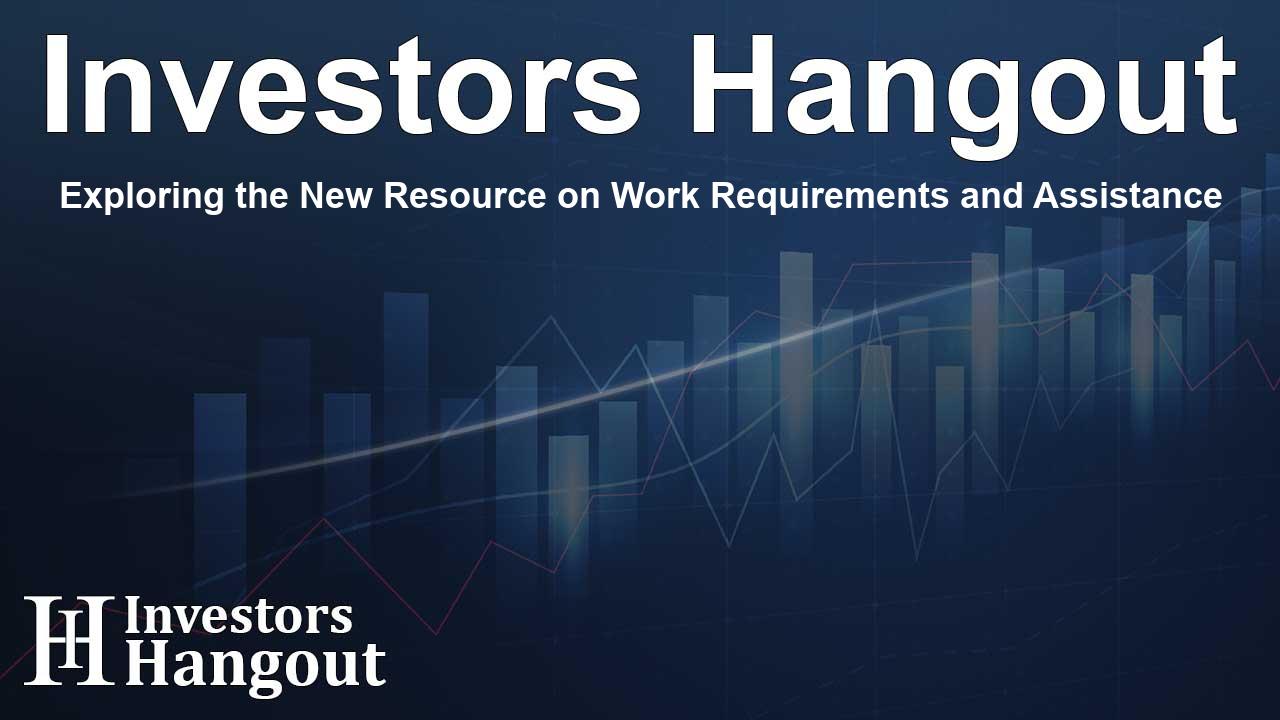Exploring the New Resource on Work Requirements and Assistance

Ballotpedia Introduces Comprehensive Guide on Work Requirements
In today's complex socio-political environment, the introduction of work requirements for public assistance programs is becoming increasingly significant. This vital aspect is at the center of the discussed "One Big Beautiful Bill Act," and Ballotpedia has risen to the occasion by launching an essential resource that comprehensively details the critical arguments, legal perspectives, and comparisons of policies nationwide across various assistance programs.
Understanding Work Requirements Across Programs
Ballotpedia's newly launched resource page titled Work Requirements for Public Assistance serves as an all-encompassing guide on the conditions that require individuals receiving public assistance to engage in activities such as job searching, training, or volunteering. The aim of this resource is to furnish policymakers, researchers, journalists, and citizens with a thorough understanding of how these work requirements are conceptualized and enforced across different states and programs.
Detailed State-by-State Analysis
This innovative content hub features an extensive, state-by-state breakdown of work requirement policies pertaining to crucial public assistance programs, which include Medicaid, Supplemental Nutrition Assistance Program (SNAP), child care subsidies, and public housing assistance. By centralizing these insights, Ballotpedia provides an invaluable tool for those looking to grasp the intricacies of work requirements and their implications.
The Importance of Timely Information
The timing of this resource's launch is paramount, as Congress is currently reviewing the work requirements included in President Trump's proposed legislation. Given the critical debates taking place about the enhancement of requirements for Medicaid and SNAP recipients, this resource is particularly relevant for understanding the ongoing policy discussions and potential impacts on individuals seeking assistance.
Featured Aspects of the New Resource
The guide includes several key features that enhance its utility, making it a must-have for stakeholders involved in public assistance programs:
- Federal overview: A comprehensive summary of work requirements across various assistance programs.
- State policy comparisons: Legislative actions and waivers at the state level regarding work requirements.
- 2025 budget reconciliation bill: An overview of how work requirements are addressed in current legislative proposals.
- Argument summaries: Briefs outlining the key points for and against the establishment of work requirements.
- Legal context: Insight into court rulings and relevant policy research related to work requirements.
- Tracking reform proposals: Timely updates on reforms and their implementation statuses.
A Resource for Various Audiences
This page is designed to serve a wide array of audiences, including:
- Policymakers: Those in search of legislative context and details on policy design.
- Researchers and academics: Individuals examining public assistance, health, and labor policies.
- Advocates and journalists: Those seeking factual information to navigate the complexities of public assistance issues.
- Engaged citizens: Voters interested in understanding how political discussions affect policy outcomes in their respective states.
About Ballotpedia
With a mission to enhance public understanding of politics and elections, Ballotpedia stands as the leading source of unbiased information in American politics. Founded in 2007, this nonprofit organization has evolved into an invaluable tool, providing access to over 600,000 articles on a broad spectrum of topics pertinent to voters, researchers, and the media. For more information, individuals can explore the vast resources available at Ballotpedia.org.
Frequently Asked Questions
What are work requirements for public assistance programs?
Work requirements stipulate that individuals must engage in specified activities, such as job searching or training, to qualify for public assistance.
Why is the new resource from Ballotpedia important?
This resource provides essential insights on work requirements amid ongoing political discussions, helping various stakeholders understand the implications of proposed policies.
Who can benefit from this new resource?
Policymakers, analysts, researchers, journalists, and engaged citizens can all benefit from the comprehensive data and analysis provided by this resource.
What topics does the resource cover?
The resource covers state-by-state comparisons, federal overviews, and arguments related to work requirements across major public assistance programs.
How can I access the resource?
The resource is available online at Ballotpedia's website, ensuring free access for all interested individuals.
About The Author
Contact Thomas Cooper privately here. Or send an email with ATTN: Thomas Cooper as the subject to contact@investorshangout.com.
About Investors Hangout
Investors Hangout is a leading online stock forum for financial discussion and learning, offering a wide range of free tools and resources. It draws in traders of all levels, who exchange market knowledge, investigate trading tactics, and keep an eye on industry developments in real time. Featuring financial articles, stock message boards, quotes, charts, company profiles, and live news updates. Through cooperative learning and a wealth of informational resources, it helps users from novices creating their first portfolios to experts honing their techniques. Join Investors Hangout today: https://investorshangout.com/
The content of this article is based on factual, publicly available information and does not represent legal, financial, or investment advice. Investors Hangout does not offer financial advice, and the author is not a licensed financial advisor. Consult a qualified advisor before making any financial or investment decisions based on this article. This article should not be considered advice to purchase, sell, or hold any securities or other investments. If any of the material provided here is inaccurate, please contact us for corrections.
